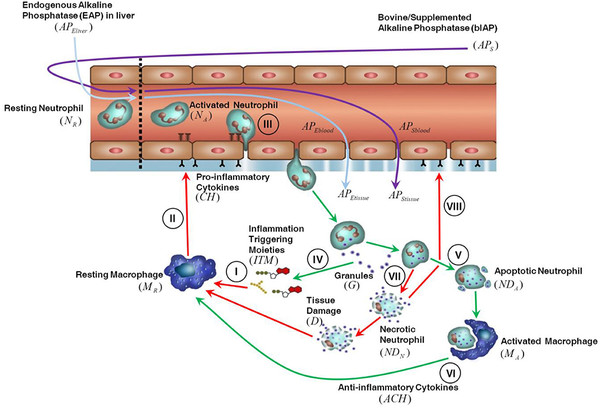Modelling and modulation of the inflammatory response in severe burns
Severe burn injuries can be life-threatening and cause a severe systemic inflammatory response and associated complications. The first stage of treatment is mainly focussed on resuscitation and stabilisation of the patients into a stage where clinical condition is not life-threatening any longer. After the patient becomes stabilised, wound closure has to be achieved. Scar and psychological treatment are subsequent. This project focusses on the first stage of burn care, where patients are concerned with survival from systemic inflammation response and high risk for sepsis following burns. Until now, active pharmaceutical intervention possibilities for this stage in burns are limited. This project aims at studying a novel application of the clinical therapeutic compound (Alkaline Phosphatase). An in-silico study (computer simulation of the inflammatory response) will be performed aimed at optimising clinical care procedures that facilitate intensive care decision processes towards individual patient specific treatment (personalised treatment).
The objectives are to 1) assess the safety and preliminary efficacy of Alkaline Phosphatase in reducing the inflammatory reaction in severely burned patients admitted to the intensive care unit and 2) to develop a mathematical model of the dynamics of the innate immune response. The study consists of four work packages: 1) collection of baseline/referential data from severely burned patients; 2) clinical study of a novel application of the clinical therapeutic compound Alkaline Phosphatase; 3) analysis of blood samples from WP1 and WP2; 4) modelling of all collected data to determine general and specific characteristics of the inflammatory response after severe burn injury, which will allow predicting efficacy of the drug in reducing the inflammatory response.
The project will advance scientific fundamental knowledge on inflammatory aspects of severe burns and the influence of Alkaline Phosphataseon this response. This will allow the development of new treatment strategies to improve health care and quality of life for severe burn wound patients and possibly other fibrotic pathologies, and optimal recovery of severe burn patients will reduce health care costs due to shorter hospital stay and reduced time out of work.

A. Presbitero, E. Mancini, R. Brands, V. V. Krzhizhanovskaya, and P. M. A. Sloot. Supplemented alkaline phosphatase supports the immune response in patients undergoing cardiac surgery: Clinical and computational evidence. Frontiers in Immunology 9, 2342. (2018)




